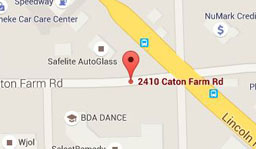Teens and Retainers
 There’s a fantastic feeling that comes when your teen is finally released from the world of brackets, elastic bands, and endless appointments for adjustments for braces. This freedom however, may quickly be dampened by the reality of the retainer.
There’s a fantastic feeling that comes when your teen is finally released from the world of brackets, elastic bands, and endless appointments for adjustments for braces. This freedom however, may quickly be dampened by the reality of the retainer.
Many teens push against wearing retainers. The retainers may get lost or break. Many kids are so tired of wearing braces that they feel like wearing a retainer is just too much to ask. The call of “mouth freedom” is hard to resist.
Some parents may feel ready to throw in the towel if their teen doesn’t want to wear the retainer. However, it’s important not to give up the fight. A retainer is essential to your teen’s orthodontics treatment. Hopefully, with increased knowledge, a little luck, and some tough-love parenting approaches, you can end the battle over wearing retainers.
What Does the Retainer Actually Do?
The reason braces work to straighten teeth is because unlike other bones in your body, the bone surrounding the roots of your teeth is slightly spongy. With gradual adjustments, teeth can actually move around because of the softer nature of this bone.
Unfortunately, this means the opposite is also true. After your teen has braces, the teeth are not cemented in their new position. They can gradually slide back to the places they were in before you ever invested in orthodontics.
Not only will this mean that all the time (and discomfort) spent wearing braces will be a waste, but it will also be a waste of money—usually for the paying parent. Also, as the teeth move back to their crooked places, your teen will again experience pain similar to the pain of wearing braces right after they’ve been adjusted.
Naturally, because of the lost time and money, parents may easily become exasperated to discover their child has not been wearing the retainer as instructed.
What Are the Most Common Excuses for Not Wearing the Retainer?
Straightening the teeth is a process that requires dedication and consistency. Some teens take it seriously, but others may give excuses to avoid wearing the retainer, even after they’ve heard all the warnings. The most common excuses are as follows.
- “All my friends had braces, and they don’t wear their retainers.” The power of friends is great—usually greater than the power of instructions from parents or a dentist.
- “My friend says I only have to wear it at night.” Wearing a retainer at night is a standard procedure, but usually one that comes only after several months of wearing the retainer full time.
- “My retainer makes my mouth hurt too much, so I hate wearing it.” Retainers hurt more if you neglect to wear them, even if only for a couple of days.
- “It’s too embarrassing to take the retainer out every time I eat.” Teens can be naturally self-conscious about taking out the retainer, so some refuse to wear it or will wear it but not take it out, thus risking damage to the appliance.
- “It affects the way I speak, and people look at me funny.” Some retainers can cause a lisp initially, but with practice, this change in speech becomes less noticeable.
By knowing the excuse, parents can then address the heart of the problem, which isn’t the retainer itself. Some kids avoid pain; others avoid apparent social humiliation or self-consciousness.
What Can Parents Do to Help Teens Follow Procedure?
Despite what you may think, as a parent you have a lot of power in helping your son or daughter stick with the program. While your approach to the issue will vary based on your teen’s needs, some effective methods of encouragement might be:
- Using logic. Does the teen know that the bones around the teeth are softer, allowing the teeth to shift? Some kids respond well to increased knowledge.
- Providing pain medication. Medicines like ibuprofen can help with the pain that may initially come with wearing the retainer.
- Finding accounts and pictures. Go online and look up the stories of teens who have ruined their straightened smiles by neglecting to wear their retainers. These testimonials can combat the information teens are getting from friends.
- Charging for braces. This might seem extreme to some parents, but charging your teen is one way to show you are serious about the importance of wearing the retainer. You might charge your teen a dollar amount every time he or she does not wear the retainer, or you might demand a percentage of how much the braces cost. This payment could come from lost allowance or your teen’s after-school job.
- Talking to a dentist about getting a permanent retainer. For some kids, a permanent, bonded retainer might the best solution. If your teen does not want to have more permanent wires or brackets in or around his or her teeth, they might get more serious about wearing the removable appliance.
If discomfort is an ongoing complaint, don’t hesitate to speak with your orthodontist about adjusting the retainer. A better fit might be necessary.
For more questions, contact us at Crest Hill Family Dental

